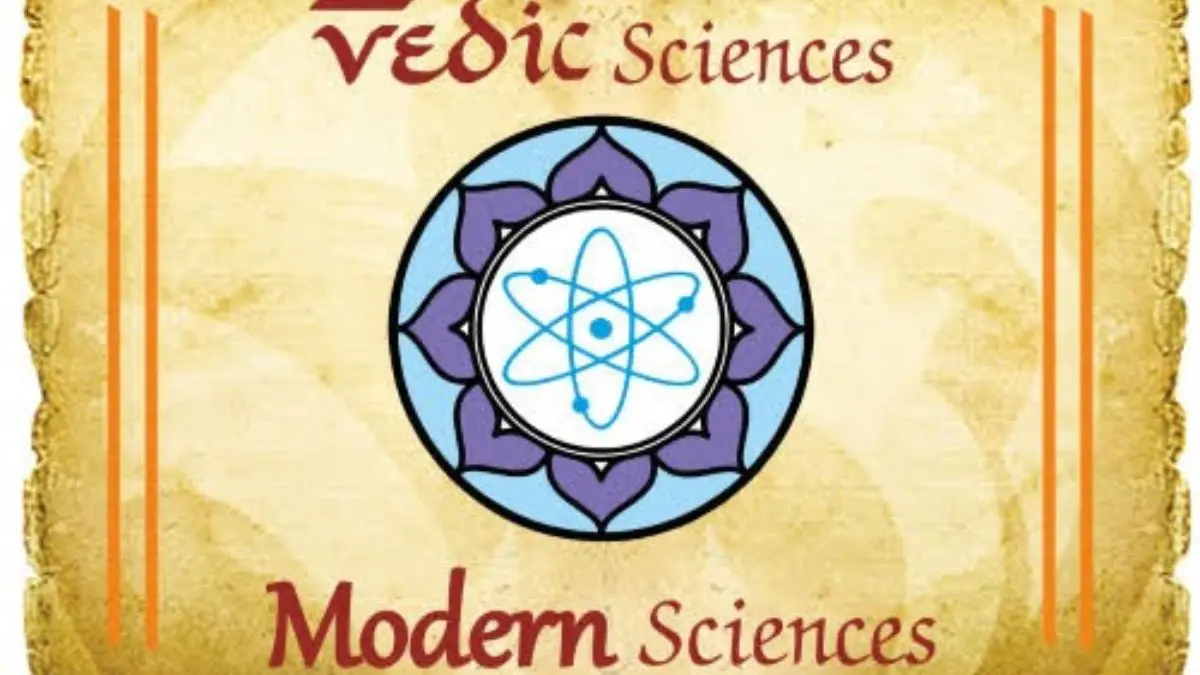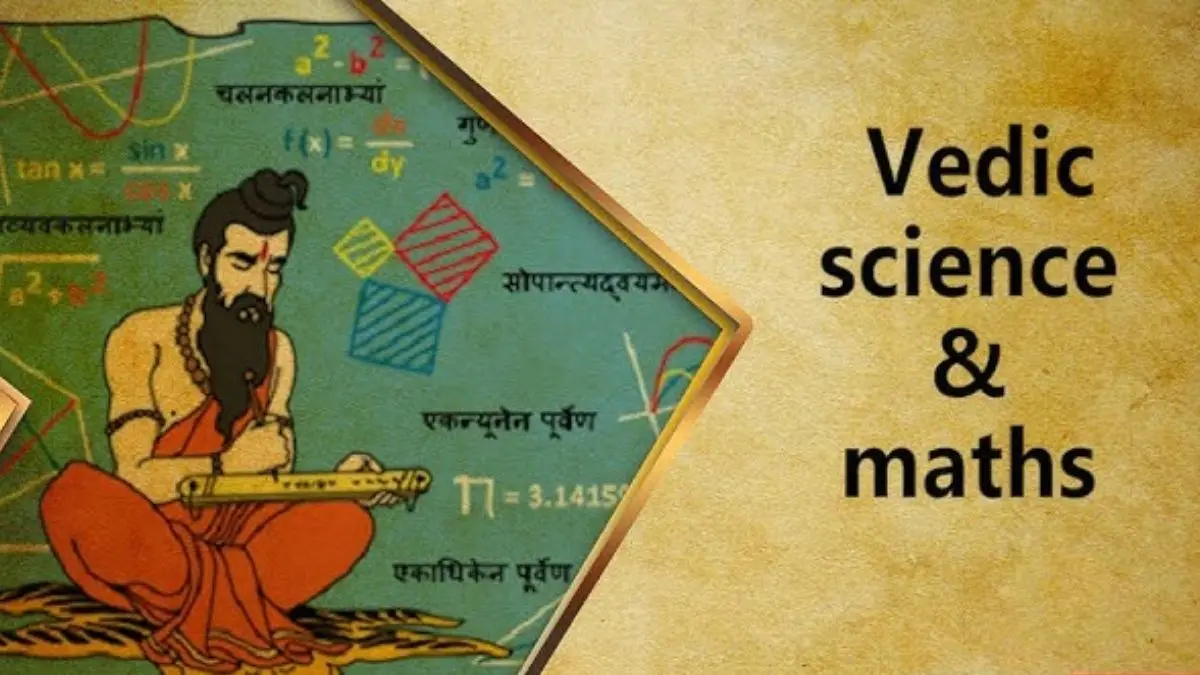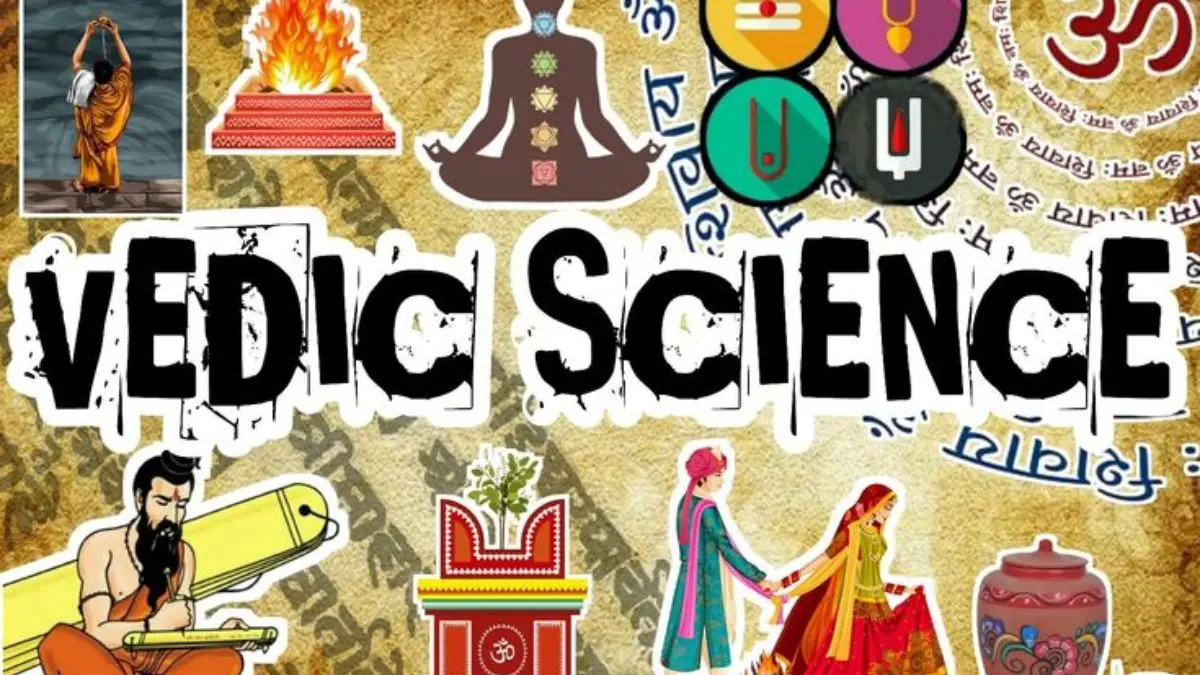Vedic science, rooted in the ancient Indian Vedas, encompasses profound knowledge in areas such as medicine, astronomy, philosophy, psychology, and mathematics. These texts, considered the oldest scriptures known to humanity, reveal insights into the physical, mental, and spiritual dimensions of existence. Despite their ancient origins, Vedic principles continue to hold relevance today, offering practical solutions to modern challenges in health, technology, environmental sustainability, and human consciousness.
Understanding Vedic Science: An Overview
Vedic science is the collection of wisdom derived from the four Vedas—Rigveda, Yajurveda, Samaveda, and Atharvaveda—dating back over 5,000 years. Unlike Western science, which focuses on materialism, Vedic science combines metaphysics and philosophy with empirical methods, aiming to understand both the material and immaterial aspects of existence. The core principles of Vedic science revolve around interconnectedness, consciousness, and the inherent harmony of the universe.
In modern terms, Vedic science can be understood as an interdisciplinary approach that merges spirituality with practical applications, encompassing Ayurveda (medicine), Jyotisha (astrology), Sthapatya Veda (architecture), and more. The depth and diversity of Vedic knowledge make it applicable across a variety of modern disciplines.

Ayurveda: A Holistic Approach to Health and Well-being
Ayurveda, a cornerstone of Vedic science, offers a preventive, personalized approach to healthcare that contrasts with Western medicine’s disease-centric model. Rooted in the idea that physical, mental, and spiritual health are interconnected, Ayurveda focuses on maintaining balance within the body. The principles of doshas (Vata, Pitta, and Kapha) explain how individuals have unique constitutions requiring specific dietary, exercise, and lifestyle practices.
Examples of Ayurveda in Modern Healthcare
Today, Ayurveda’s holistic approach to wellness is increasingly embraced by those seeking alternatives to conventional medicine. For instance, the use of Ashwagandha for stress management, Turmeric as an anti-inflammatory, and Triphala for digestion are examples of Ayurvedic practices integrated into modern health routines worldwide. Additionally, Ayurvedic principles of detoxification and balance have informed modern practices like wellness retreats and herbal supplements, reflecting the relevance of Vedic health science in contemporary healthcare.
Jyotisha: The Science of Astrology
Jyotisha, or Vedic astrology, interprets the influence of planetary movements on human affairs, viewing the cosmos as a coherent, interconnected whole. Unlike Western astrology, Jyotisha emphasizes karma and reincarnation, suggesting that our past actions influence our present and future experiences. Although it may be seen as a pseudoscience by some, Jyotisha provides valuable insights into personality, relationships, and life decisions, appealing to those exploring personal growth and understanding.
Modern Interest in Jyotisha
In the digital age, Jyotisha has gained popularity for guiding career choices, relationship compatibility, and even financial decisions. Vedic astrology apps and platforms offer personalized horoscopes and consultations, making it accessible to a global audience. Moreover, Jyotisha’s connection with yoga and meditation practices reflects its growing influence among those seeking holistic lifestyles, showing that Vedic knowledge can coexist with contemporary personal development practices.
Vedic Mathematics: Ancient Solutions for Modern Problems
Vedic mathematics is a fascinating branch of Vedic science that offers a set of techniques for rapid mental calculations. Formulated in the 20th century from ancient texts, these techniques simplify complex mathematical problems, making them easy to understand and apply. This system promotes creativity, logical thinking, and problem-solving skills, qualities that are invaluable in today’s technology-driven world.
Examples of Vedic Math in Education
In the field of education, Vedic mathematics is gaining traction as an innovative tool for teaching math, especially in schools. Techniques like Sutra for addition, multiplication, and division enable students to solve problems more efficiently. Vedic math courses and workshops are now popular, helping students worldwide develop mathematical skills that are faster and more intuitive than traditional methods.

Environmental Sustainability: Lessons from Vedic Ecology
Vedic science promotes dharma, or responsibility toward nature, advocating for an ecological approach that respects all life forms. Concepts like Ahimsa (non-violence) and Sama Bhava (equality) underscore the importance of living harmoniously with the environment. Vedic traditions also emphasize sustainable agricultural practices, organic farming, and herbal medicine, which minimize harm to the earth and promote ecological balance.
Vedic Approaches to Modern Environmental Challenges
With the rise of environmental concerns, Vedic principles offer valuable insights. For example, organic farming practices that avoid harmful chemicals align with the Ayurvedic approach of using natural remedies over synthetic ones. The principle of Bhoomi Pooja (respect for the land) encourages sustainable land management, while the practice of Yajna (ritual offerings) is adapted today in the form of community rituals to promote environmental awareness. By adopting these practices, modern society can work toward a more sustainable, respectful relationship with nature.
Meditation and Yoga: Tools for Mental Wellness
Meditation and yoga are integral parts of Vedic science, aimed at achieving a balanced state of mind and enhancing self-awareness. In today’s fast-paced, stressful world, these practices are essential for mental health and well-being. Studies have shown that meditation can reduce anxiety, improve focus, and foster emotional resilience, while yoga has been linked to numerous physical health benefits, including improved flexibility, strength, and cardiovascular health.
Real-World Applications of Vedic Meditation and Yoga
Mindfulness meditation, derived from Vedic practices, has gained popularity in the West, with applications ranging from stress reduction in workplaces to therapeutic techniques in clinical psychology. Programs like Mindfulness-Based Stress Reduction (MBSR) and yoga studios worldwide incorporate these ancient practices into modern therapeutic contexts. Furthermore, leading corporations, including Google and Apple, have adopted meditation practices to boost employee productivity and well-being, demonstrating the timeless relevance of Vedic mental wellness techniques.
Quantum Physics and Vedic Science: Bridging Ancient and Modern Knowledge
One of the most intriguing aspects of Vedic science is its conceptual alignment with modern quantum physics. Concepts such as the Akashic field in Vedic literature, an infinite field of knowledge, resonate with the quantum concept of a universal field that connects all things. This idea of interconnectedness reflects modern scientific theories that propose the unity of consciousness and matter.
Vedic Insights in Contemporary Physics
Theoretical physicists have acknowledged the similarity between quantum entanglement and Vedic notions of unity and interdependence. For example, the Vedic concept of Maya (illusion) aligns with quantum theory’s implication that reality may be subjective and dependent on the observer. Such correlations inspire modern scientists to explore how ancient philosophies could inform future advancements in quantum science, illustrating that Vedic concepts may hold untapped potential in shaping modern science.

Ethical Living and Vedic Philosophy
Ethics and morality are central to Vedic philosophy, with values like Satya (truth), Daya (compassion), and Kshama (forgiveness) emphasized throughout the Vedas. These values are particularly relevant today, as society grapples with ethical dilemmas in technology, business, and personal relationships. Vedic philosophy provides a moral framework that can guide individuals toward compassionate, conscious living.
Implementing Vedic Ethics in the Modern World
In fields like corporate governance and artificial intelligence, Vedic ethics offer guidance on responsible practices. For example, in the business world, Vedic principles such as Dharma promote ethical decision-making and corporate social responsibility. Additionally, leaders and innovators can draw upon these values to foster integrity, sustainability, and respect for human life. As technology advances, Vedic ethics may serve as a counterbalance, ensuring that humanity progresses with moral consciousness.
The Future of Vedic Science in Modern Society
As humanity faces increasing challenges in health, environmental sustainability, and mental well-being, Vedic science offers valuable tools for addressing these issues. Modern science and technology can benefit from integrating Vedic principles, whether through sustainable living practices, holistic healthcare, or ethical frameworks. Although ancient, the wisdom of the Vedas provides a timeless resource for personal growth, social harmony, and ecological balance.
Also Read: Who is Narada Muni? The Mischievous Sage and His Influence on Divine Events



